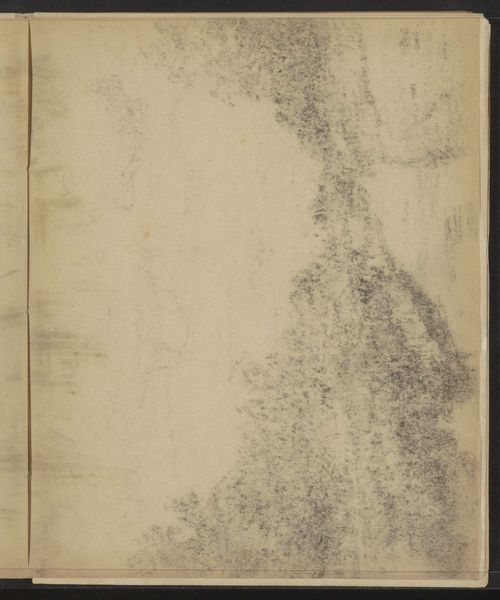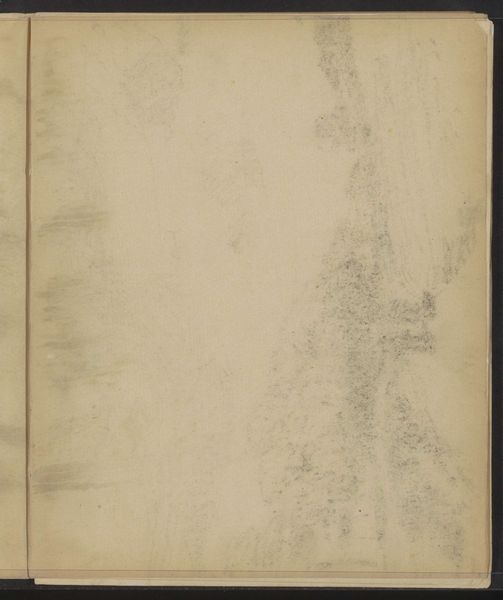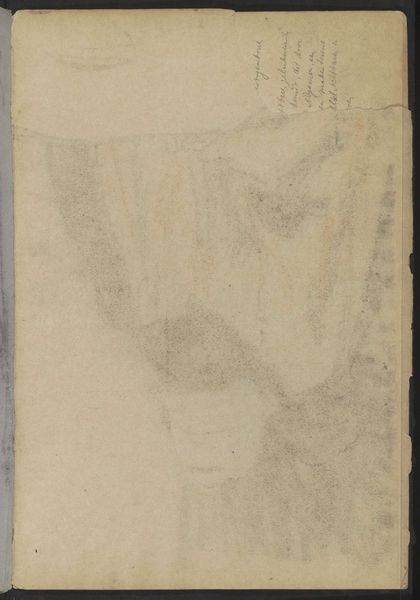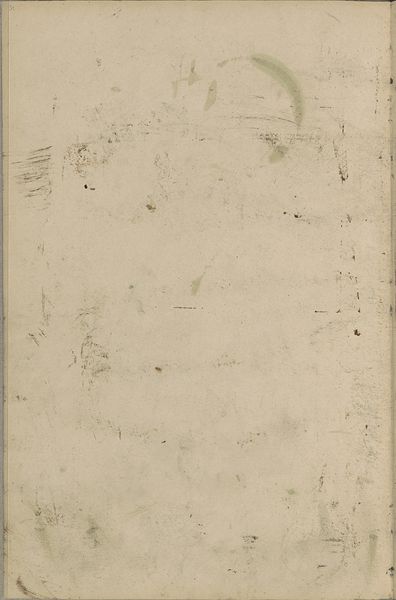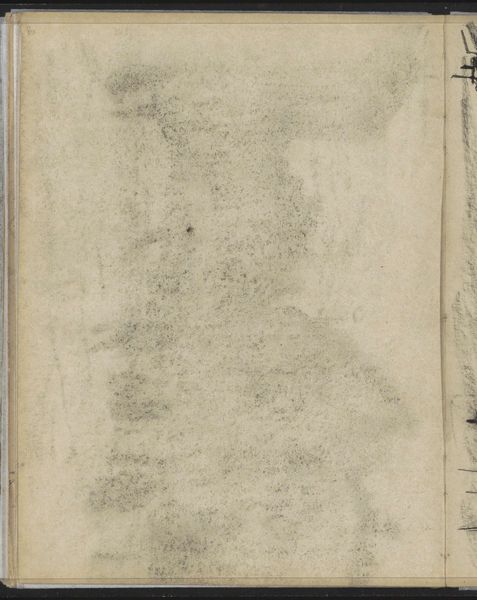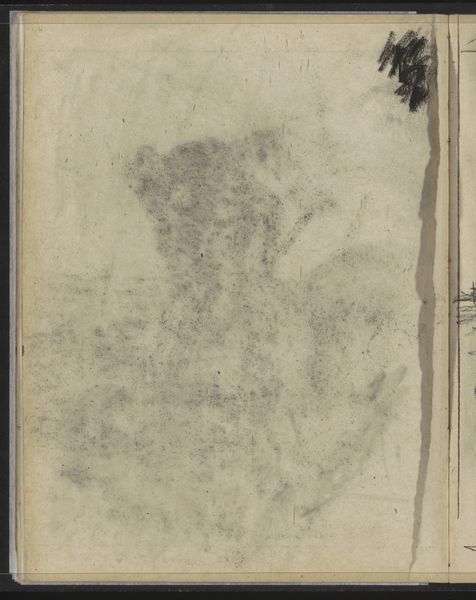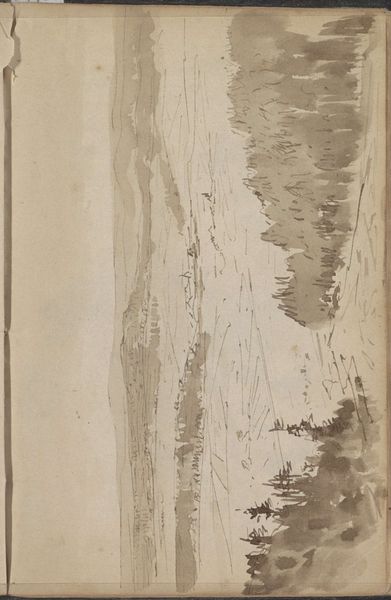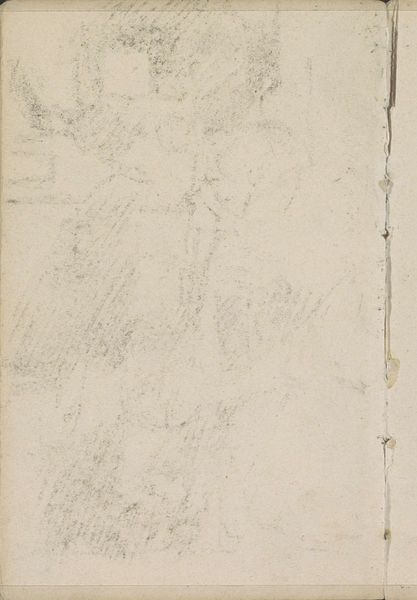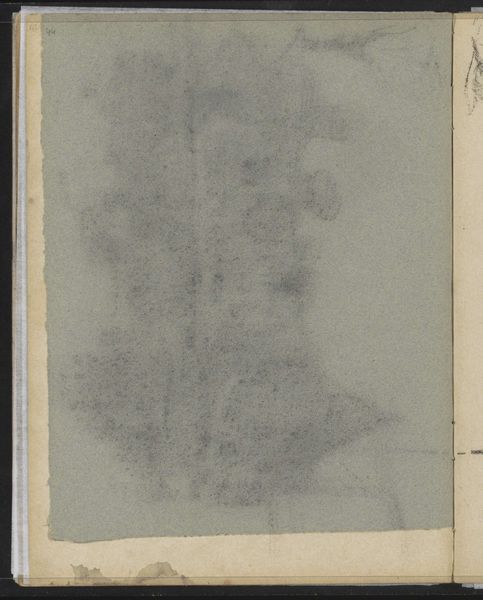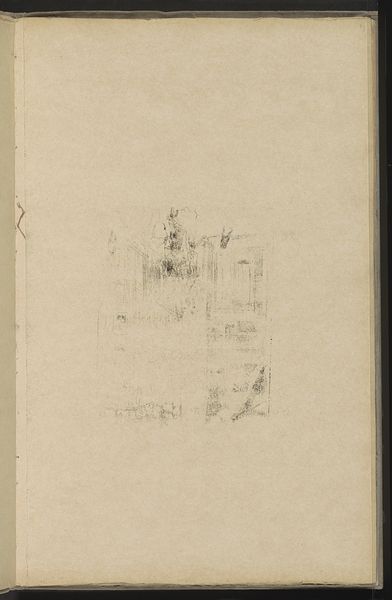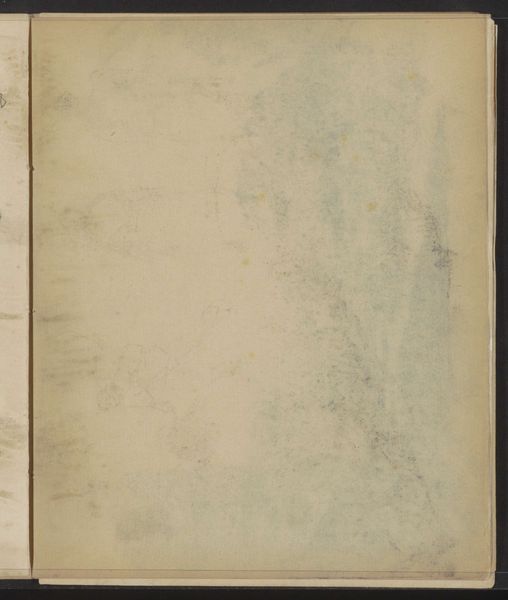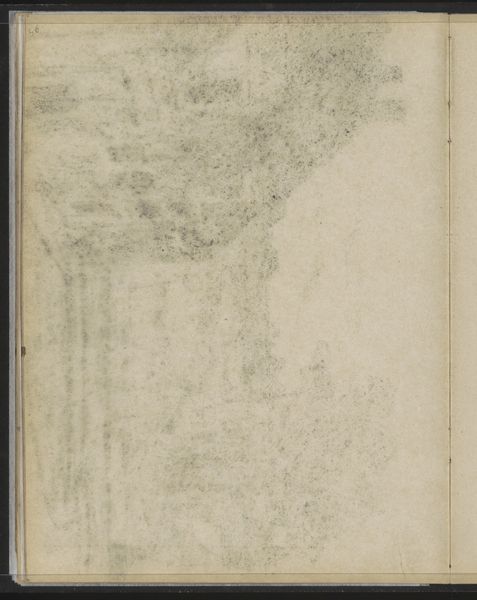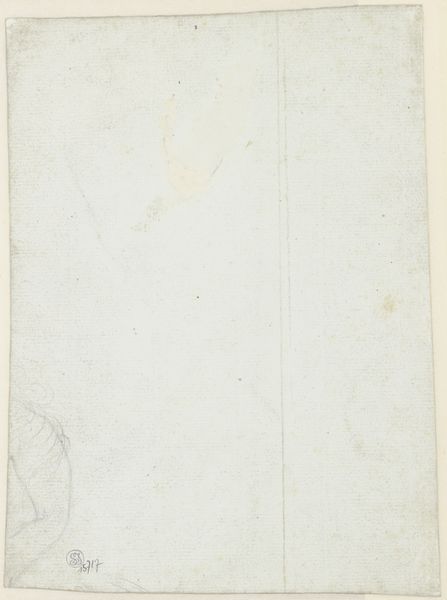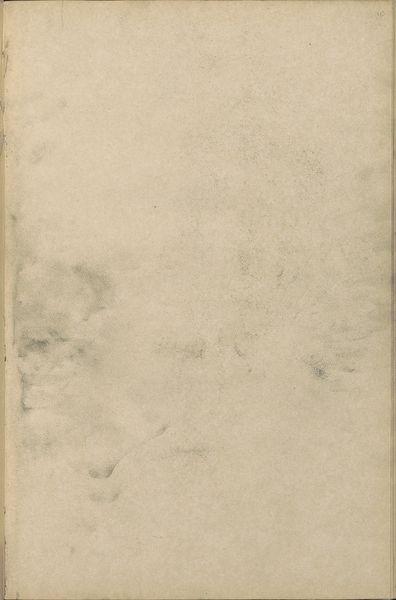
Copyright: Rijks Museum: Open Domain
Curator: We're looking at Willem Bastiaan Tholen's "Abklatsch van een krijttekening" from between 1890 and 1931, currently held in the Rijksmuseum. It's a drawing, seemingly a copy ("Abklatsch" implying a transfer) of a chalk drawing. What are your initial thoughts? Editor: My first impression is ethereal and slightly melancholic. The hazy outlines and muted tones give it the air of a faded memory or a scene obscured by fog. It looks accidental, like a happy accident made while sketching in a sketchbook. Curator: The "accidental" feel resonates with its technical nature. This 'transfer' method would create a softer, less defined image compared to direct drawing, affecting the line quality considerably, and, notably, introducing chance. I'm drawn to how Tholen harnesses this very lack of control. Semiotically, consider what is lost and gained in this reproductive process! Editor: Interesting, and if it is the 'copy' you mentioned, then what might that tell us about what Tholen was interested in or influenced by at that time? I can see echoes of Impressionism in the attempt to capture light and atmosphere. What visual cues suggest the artist was perhaps outdoors? The overall aesthetic seems intentionally vague... I'm intrigued. Curator: Observe how Tholen exploits the flatness of the page to push against traditional illusionistic space; it refuses to mimic the depth of the natural world! Notice also, if you will, that lack of traditional detail forces the viewer to complete the composition. It is up to us, perhaps, to fill in those melancholic trees. Editor: A key choice! Yes, I read that 'incomplete sketch' feeling now not as 'lacking,' but as deliberate. We bring our own interpretations, our own landscapes to it. In terms of symbolic reading, perhaps the 'transfer' speaks of transience? The fleeting nature of the scene… or even life. Curator: Precisely. This challenges the Romantic idea of nature as some sublime and dominating presence, opting instead for an intimate, subjective, even fragile, encounter. Editor: This piece has shifted my initial perception. I now find its delicacy far more powerful. Curator: For me, it re-emphasizes how the mechanics and medium can redefine the message.
Comments
No comments
Be the first to comment and join the conversation on the ultimate creative platform.
